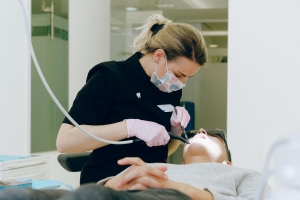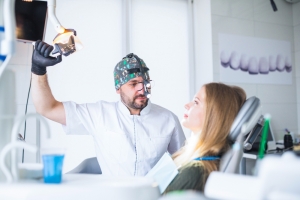When it comes to our wisdom teeth, some of us - the lucky ones - will experience minimal issues when they start growing in. But for many others, they'll quite literally erupt through our gums, causing extreme pain and discomfort. That is - if we choose not to have them removed before this happens.
Getting our wisdom teeth removed can save us from experiencing the excruciating pain of having them erupt at random. Despite this, the removal procedure itself is not without some discomfort - which is why it's a good idea to be prepared.
This article will provide an overview of what to expect and how to prepare before, during and after wisdom teeth removal.
Before: Preparing for Wisdom Teeth Removal
Whether you're undergoing the procedure at a local clinic like Aria Dental or with an oral surgeon, here's how to prepare for your wisdom teeth removal:
Research and Ask Questions
Once your dental practitioner has advised that you need to get your wisdom teeth removed, you'll likely have a bunch of questions. “What does the surgery involve?” “Will it hurt?” “How long will it take me to recover?”
The best source of information about your upcoming procedure is most often your dentist. Make sure you consult with them thoroughly before your surgery and that you understand the process fully. Your dentist can also provide you with reading material about wisdom teeth extraction and point you in the right direction of credible medical resources to consult.
Arrange Your Transportation
The fact of the matter is, we shouldn't drive ourselves home after we've been under anesthetic. Why? After being anaethetised, our reflexes are impaired, our muscles are relaxed, and it's simply not safe for us to drive. For this reason, we should refrain from driving for at least 24 hours after having an anesthetic applied.
What does this mean for you? You'll need help to get home after your extraction surgery. Your best bet is to ask a friend or family member for a lift.
Prepare for Your Recovery
Lastly, be sure to do some recovery prep. Ensure you have a comfortable recovery space to relax in once you get home. You'll likely be in quite a bit of pain after your procedure, so you'll want to at least feel at ease while you're wallowing in self-pity. Set up your favourite TV show to binge or perhaps plan out a movie marathon. Chances are, you won't want to leave the house for a while, at least until after your facial swelling goes down.
Another key element to prepare? Make sure you have soft, mushy food on hand. You won't be able to eat solids for at least 24 - 28 hours after your wisdom teeth extraction surgery. Your future self will be grateful if you've grabbed yourself some soothing ice cream or jelly, or - for more nutritious options - prepared yourself some vegetable puree or a healthy pumpkin soup.
During: What to Expect from the Procedure
Fortunately, the wisdom teeth removal procedure is relatively swift and simple - it often takes less than an hour.
As well as this, you can take comfort in the fact that as many as 10 million wisdom teeth are removed every year. This is unlikely to be your dentist's first rodeo, so you can feel safe in knowing you're in well-versed hands while your wisdom teeth are being removed.
After: Recovering from Wisdom Teeth Removal
You've emerged from your surgery, swollen cheeks making you look somewhat like a chipmunk. You may be feeling some tenderness, pain, or discomfort - this is completely normal.
This is the part where you'll be thanking your past self for your pre-surgery recovery prep. You'll be grateful for a cozy spot to lie in and mushy snacks to slurp on. Take it easy over the next few days, and most importantly, allow yourself time to recover and heal.
Wisdom teeth extraction is a procedure that is surprisingly common, but that doesn't make it any less uncomfortable.
But if you ensure you are informed, ready, and well-prepared for surgery, having your wisdom teeth removed is well worth the temporary discomfort - as it can minimise the chances of future complications.






